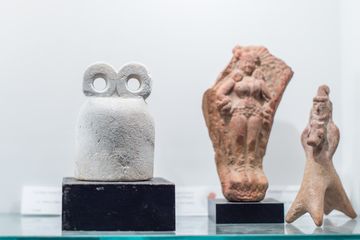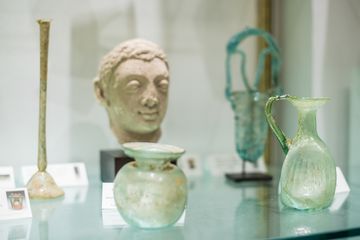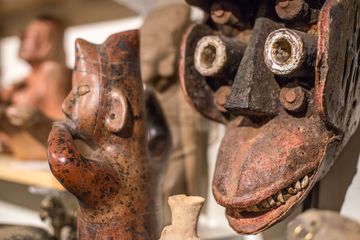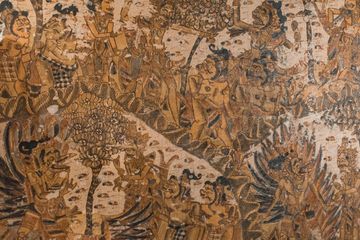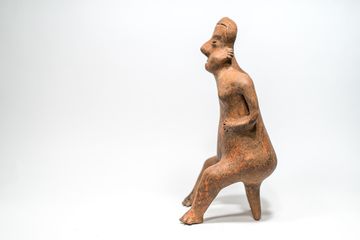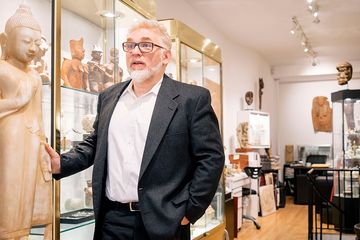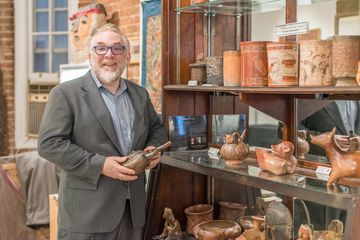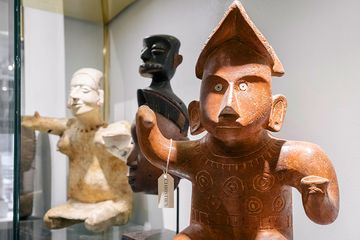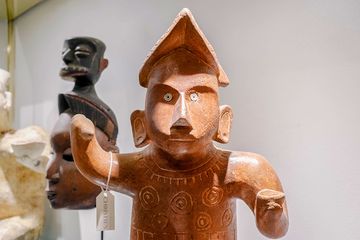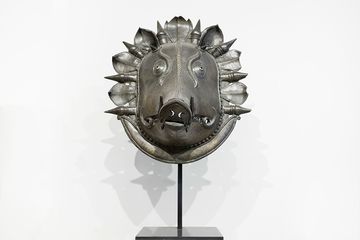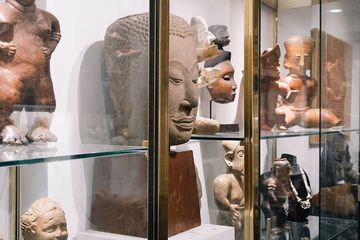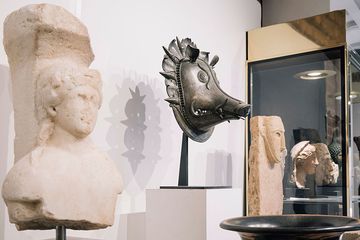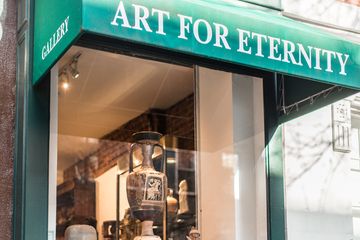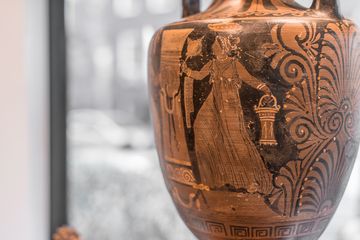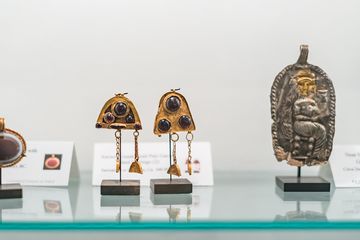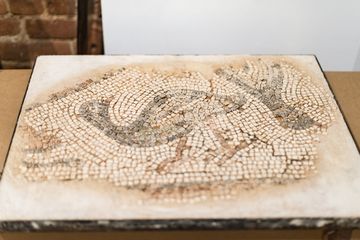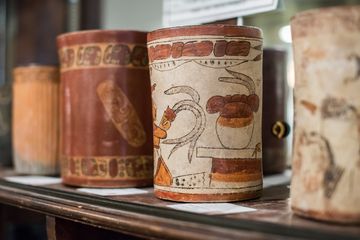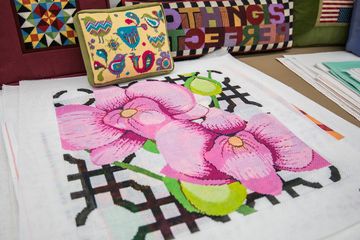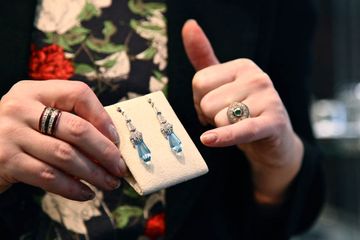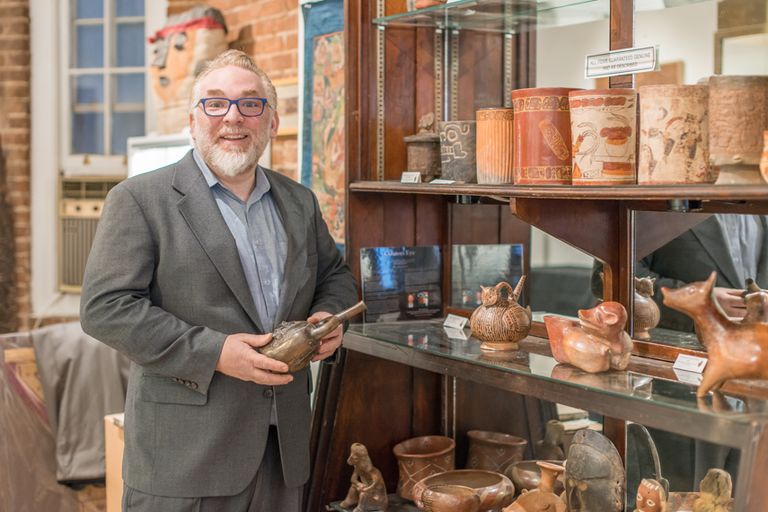
When I asked Howard Nowes, the owner of Art for Eternity, what the oldest piece in his gallery was, he led me over to a Mesopotamian statue dating back 3500 years. It was pure white and had a circular design on top like eyes, signifying that it was meant to represent the All Seeing God. I never would have expected to find such an antique, ancient and steeped in history, in a small shop on a side street, but Howie's store was filled with such items. He took me around his shop, pointing out pieces from Southeast Asia, Europe, and South America. I learned that Howie had taken a "grand tour" of the world after graduating from Skidmore with a Fine Arts degree and had fallen in love with the ancient antiques that he discovered. He considers himself lucky that he entered the antiquities business when he did, since issues of patrimony have now come to the forefront of cultural-political discourse and UNESCO has started cracking down on removing antiquities from their original homes.
Howie began working in a gallery with other dealers downtown. After establishing himself there, he set off on his own. In addition to experience in the antiques market, he has also spent time on digs, unearthing the antiquities himself. He told me that his business was struggling until the late 1990s when the internet offered him new ways to reach out to collectors and find interested customers. He was one of the first dealers to be featured on the Sotheby's website.
Being on a side street has helped Howie in unexpected ways. Neighbors will often think of him when they have pieces they want to sell. For example, Howie told me that one local came in with an African mask that his aunt left to him in her will. The man explained that he frequently walks by Art for Eternity, and so Howie was the first person he thought of when the mask fell into his hands. Walk-ins, however, are rare. As Howie joked, not many people step out to "pick up a gallon of milk and an African mask."
"The world of antiquities is fascinating, since history repeats itself," Howie declared. Referring to the All Seeing God statuette, he pointed out that it often catches the eye of contemporary art collectors, because it seems abstract. Howie loves that almost everything that is referred to as an "antiquity" has a purpose. They rarely exist solely because of a whim of an artist, but often play a role in religion, politics, or home life. He has become interested in marking the patterns of what tends to draw customers. For example, "captains of industry" tend to buy antique wagon wheels and spears.
Howie's personal favorite part of the world of antiquities is Roman marble pieces, though he also has a fondness for pre-Columbian gold, since that is what his wife prefers. He also spoke at length about the cleverness of African art and how each mask and totem has a rich history of use in ceremonies and rituals. He then guided me to the lower level of his shop, filled with wooden African art and books. I could have spent hours in the room, where there is something fascinating on every shelf.
"This is a reputable gallery that's in it for the long run," Howie declared. He showed me the Art Loss Register, where gallery owners can guarantee that their pieces have never been stolen and come from reputable sources. He likes to join his customers on their "personal journey" and make sure that they never feel buyer's remorse. Though Howie's collectors come to him from every corner of the world, he notices that he does not see many young customers. He has seen a trend in the younger generations spending money on experiences rather than items, especially in New York, where most residents have very little space in their apartments. He encourages the younger generation to explore his shop, regardless: "People experience a sense of discovery when they come in" he told me. "Everything has a story."

